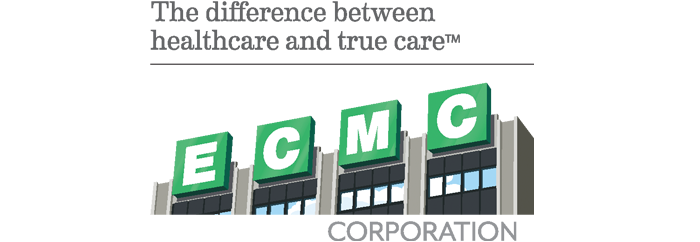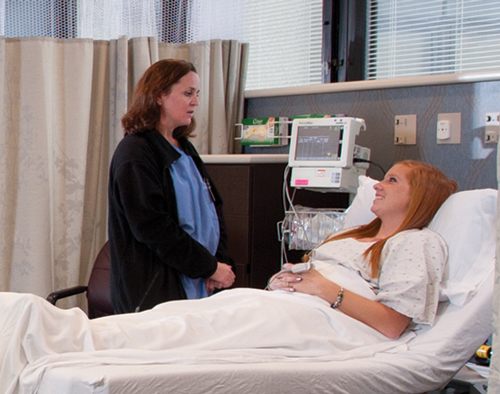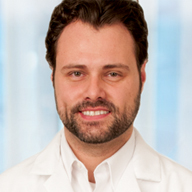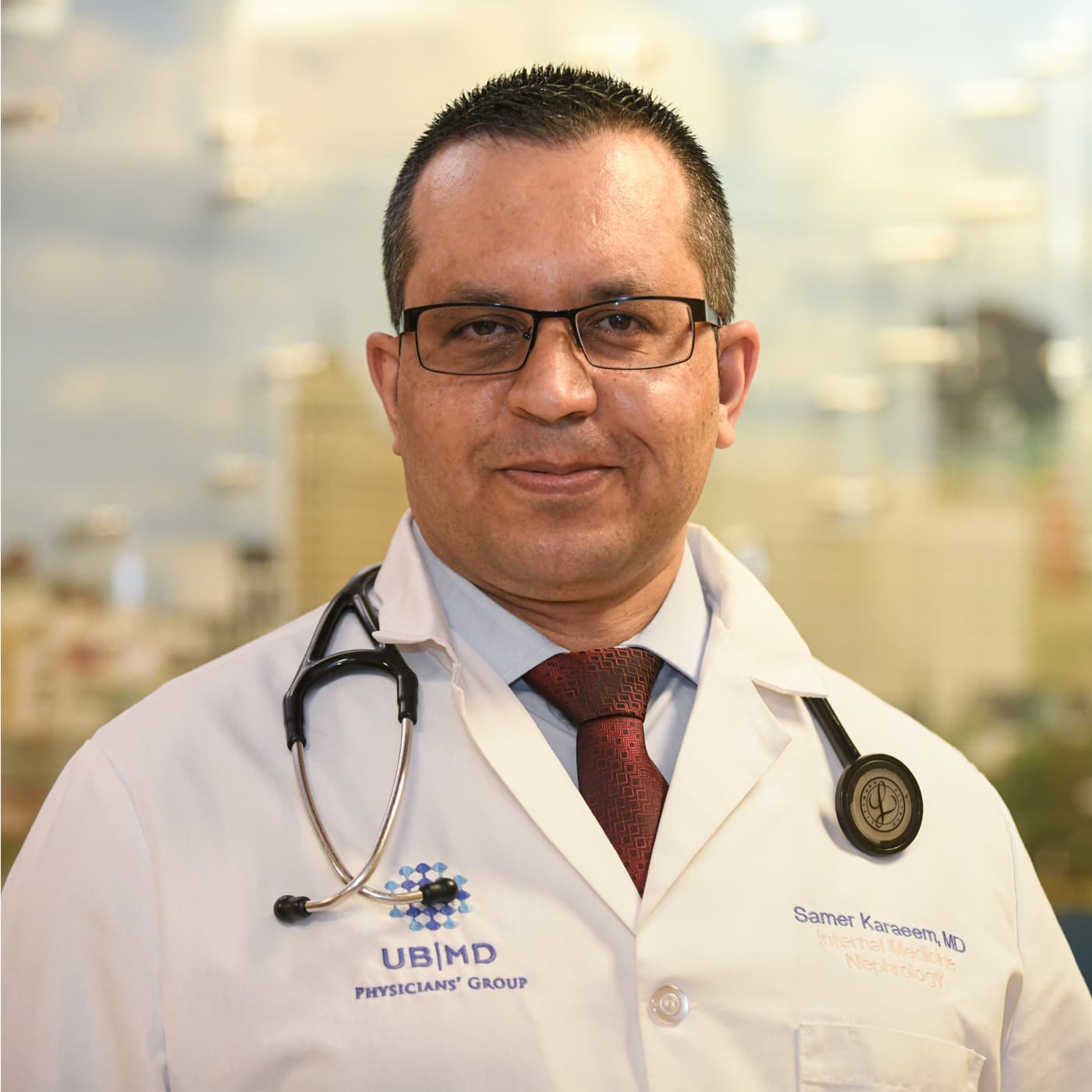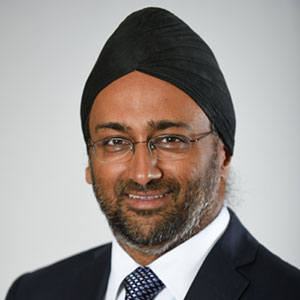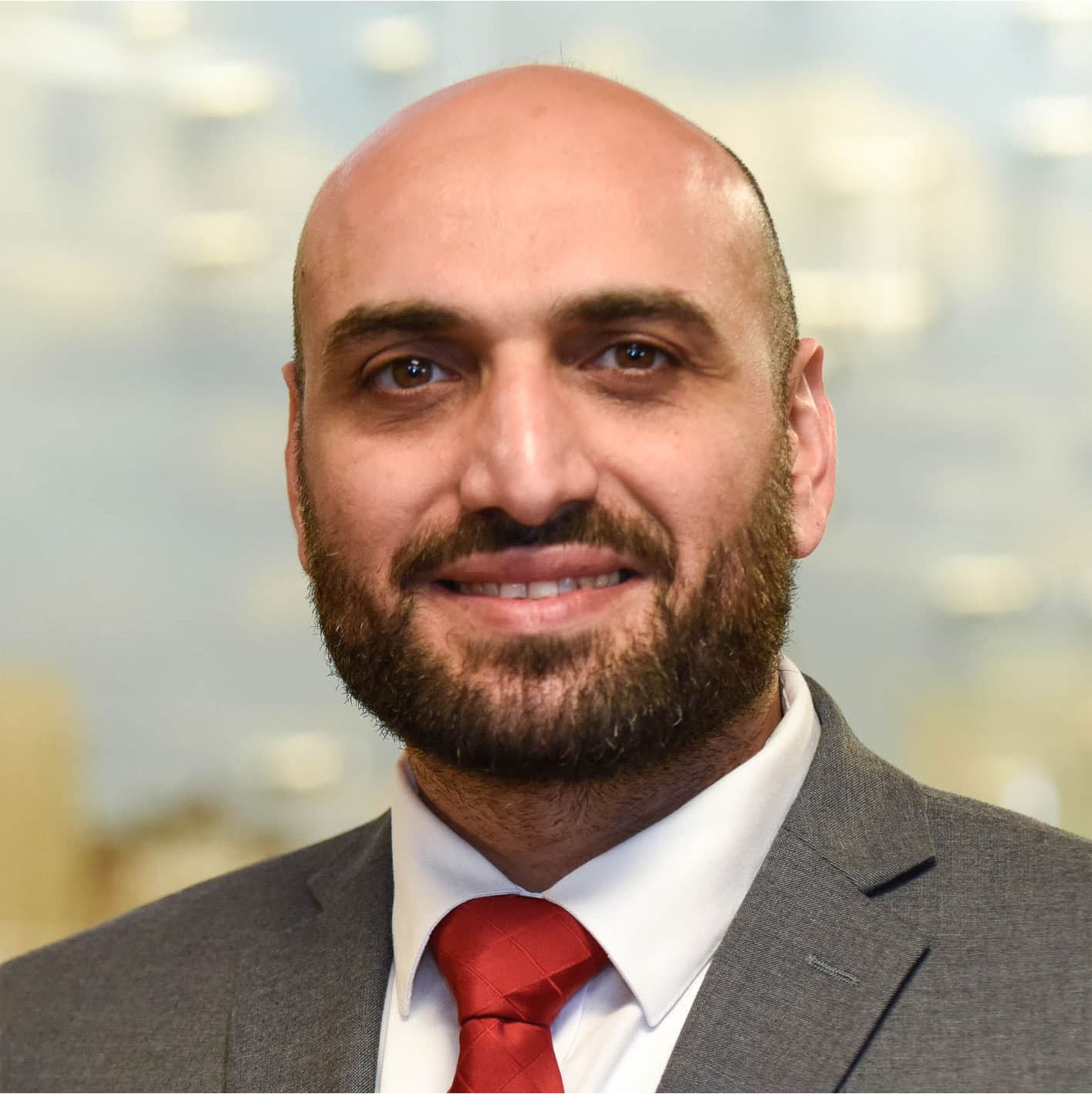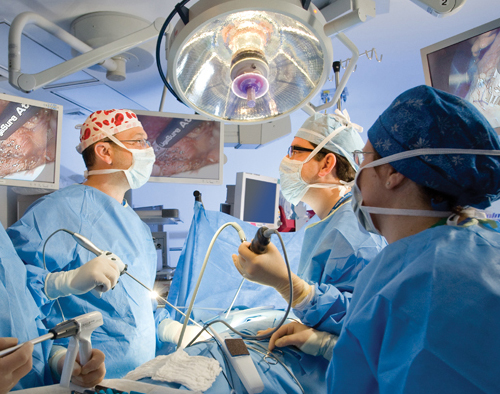
How Do I Know if I Have Kidney Failure?
Beyond kidney dialysis, kidney transplants are the main option for patients with chronic kidney failure. In a kidney transplant procedure, the donated kidney is surgically placed in the lower abdominal area and replaces the function of the natural kidneys. The patient’s own kidneys are usually left in place. A kidney transplant recipient must take medicine for the life of the transplanted kidney to prevent rejection and follow strict schedules for lab testing and doctor visits. Kidney transplants carry some risks, but also have the potential to bring patients higher quality of life for a longer period of time.
Donor kidneys come from one of two sources:
- Deceased organ donors – the families of deceased make the decision to donate their organs to patients on the transplant wait list
- Living donors – people who may be blood relatives, spouses, friends, or even strangers (altruistic donors) and volunteer to donate (Learn more »)
The kidney transplant process is involved, but throughout, you’ll have the support of a highly specialized team with extensive experience, that is equipped to recognize and attend to any complications. Then, when it comes time for discharge following kidney transplant or pancreas transplant, the same team will advise the patient on the care necessary for the best outcome—including guidance on renal diet, incision cleaning, activity, and necessary medications.
The Kidney Donation Process
Explore below to learn more about what to expect from the process.
Kidney Transplant Evaluation
Before a patient can be considered for a kidney transplant, they undergo a thorough evaluation process.
In order to determine if you are eligible for a kidney transplant, we will thoroughly review your health status. This evaluation process begins with a review of your medical history, and also includes face-to-face meetings with:
- A transplant nurse coordinator, who will provide an overview of the evaluation and transplant process as well as what to expect afterwards (please bring a support person and potential living donor, if applicable).
- A transplant doctor, who will perform a physical examination and discuss your medical history with you.
- A dietitian, who can discuss your weight or other nutritional problems you may have.
- A financial coordinator, who will discuss the costs of transplantation.
- A social worker, who will meet with patients to evaluate their ability to cope with the stress of transplantation and their ability to follow a rigorous treatment plan, both before and after transplantation.
In addition, blood tests, x-rays, and an EKG will be needed.
Depending on your age and health, some other tests might be necessary, such as:
- An echocardiogram
- A stress test
- Cardiac catheterization
- Pulmonary (lung) function tests
- CT scan of the lungs to screen for lung cancer
- Colonoscopy to screen for colon cancer
- Dental exam to check for cavities or infection
Once your medical evaluation is complete, the results will be reviewed by the transplant team and final insurance authorization will be obtained for the waiting list. You will be notified by letter when you are listed on the waiting list.
Kidney Transplant Waiting List
Prospective kidney transplant recipients can be placed on the transplant waiting list for the best odds of receiving a kidney.
When you are waiting for a transplant, you will be on both a local transplant list and a national list, which make it possible for you to receive a kidney from anywhere in the country. It is not possible to say exactly how long it will take for you to receive a transplant because we never know when donors will be available. You are allowed to be on more than one wait list as long as the transplant center is not in NY state. UNOS (United Network for Organ Sharing) is the organization contracted with the federal government to oversee all organ procurement and transplant programs in the country and makes the rules about who can do transplants and how organs are to be given to patients.
While you are on the waitlist, you will be contacted frequently to find out if there have been changes or updates to your:
- Medical condition
- Contact information
- Dialysis schedule
- Insurance
- Medications
- Additional testing results
You will also be asked to come to the clinic every one to three years for an update visit with a doctor. All patients on the waitlist will also require periodic updates on certain lab tests and heart tests. Please cooperate with our staff when they contact you to schedule these tests. Failure to respond to these requests may jeopardize your status on the waiting list.
Kidney Transplant Surgery
When a patient and donor kidney are matched, surgery needs to happen quickly. Patients should learn more about the process to be prepared.
When you receive a kidney transplant, the kidney will be placed within either side of your lower abdomen. The donor kidney’s blood vessels will be connected to your blood vessels, and the donor ureter (the tube that carries urine from the kidney to the bladder) will be connected to your bladder. A small catheter called a urinary stent may be placed across the connection to provide support. The incision will be closed with staples. Generally, kidney transplant surgery lasts about two to four hours.
Most patients do not require additional procedures during kidney transplantation. For patients with Polycystic Disease (PKD) we will develop a customized treatment plan. If the native kidneys are removed during the transplant operation this generally takes an additional 2 hours.
Recovery in the Hospital
When you wake up after surgery, you will have intravenous lines (IVs) in your neck or arm, which will help your aftercare team make sure you get enough fluids. You will have a catheter in your bladder to drain the urine. You may notice blood in your urine, which is usually normal and a result of the surgical connection in the bladder. However, sometimes clots can form and block the catheter tube. If this happens, your nurse will need to flush it.
Throughout your recovery, you will receive medicine to help with pain you experience. During the first 24-48 hours after your surgery, you can expect to be checked frequently by your nurse for:
- Blood pressure
- Temperature
- Pulse
- Urine output
For the rest of your time in the hospital (generally, patients stay for about three to five days), your nurse will draw your blood and weigh you each morning to plan your care for that day. You can also expect to be asked to take deep breaths often, and use a breathing exerciser to open all areas of your lungs. If possible, you will be out of bed the day after surgery and encouraged to walk as often as possible while you are in the hospital.
Before you’re released, your recovery team will teach you and your family about your medicines and the signs of rejection, and give you the information you need for a healthy recovery.
Recovery Out of the Hospital
After you go home from the hospital, it is important for the transplant team to follow you closely. You will need to come to the transplant clinic twice a week for the first few weeks, and then once a week for a few months. As time passes, the clinic visits and lab tests will become less frequent.
About four weeks after your transplant, the ureteral stent will be removed. For this procedure, you’ll be under general anesthesia while a tube with a camera is inserted into your bladder (like a catheter) and the small stent is simply located and removed. The procedure takes only a short time and you will go home as soon as you are fully awake after the procedure.
You will not be able to drive for several weeks after your transplant. You will need someone else to drive you for lab tests and doctor visits during that time.
All transplant patients need to have a primary care doctor and must pay close attention to routine health maintenance, including:
- Screening mammograms (for women)
- Colonoscopy for patients over 50
- Skin cancer screenings
If you do not have a primary care doctor, your transplant team can help you find one.
Arrangements for your lab tests and clinic visits will be made by one of the transplant coordinators when you are discharged from the hospital.
And of course, if you have other further questions about your kidney transplant, you can also always contact us at (716) 898-5001.
Post-Transplant Surgery Medication
After a kidney transplant, recipients will need to take medication for both short- and long-term success.
The medicines you will take after your kidney transplant to keep your body from rejecting your new kidney are called immunosuppressants. You will have to take these medicines every day for as long as you have your transplant. In some cases, even after a transplant stops working, remaining on small doses of these medicines is useful to prevent antibody formation and can make another successful transplant more likely.
There are a number of immunosuppressants that can be used, and they can be used individually or in combination. All of them have potential side effects, but remember that not all patients suffer from all the side effects listed.
Some immunosuppressants include:
PROGRAF (FK506) – is taken twice a day. Side effects include:
- Headache
- Hand tremors
- Nausea
- Diarrhea
- High blood pressure
- Increased blood sugar and potassium
- Decreased magnesium
Prograf can also harm your kidneys over time. The dosing of this drug is based on the amount of drug in your blood. You must take care to take doses 12 hours apart and have your blood tests done just before your morning dose.
CYCLOSPORINE – is taken twice a day. Side effects include:
- High blood pressure
- Mild hand tremors
- Headache
- Increased growth of hair
Cyclosporine can also harm your kidneys over time. You must take care to dose it 12 hours apart and have your blood tests done just before your morning dose.
RAPAMUNE (SIROLIMUS) – is taken once a day in the morning. Side effects include:
- Ankle swelling
- Abdominal pain
- Nausea
- Diarrhea
- Constipation
- Joint aches
- Fever
- Headache
- High blood pressure
- Anemia
- High cholesterol triglyceride levels
Blood levels are also measured for this medicine so blood test should be done before your morning dose.
CELLCEPT – is taken two to four times a day. Side effects include:
- Diarrhea
- Nausea
- Vomiting
- Rash
- Low white blood cell count with increased risk for infection
PREDNISONE – is taken once a day, and can be for short or long-term use. Side effects for long-term use include:
- Difficulty sleeping or may feel “hyper” (should subside within a few days)
- Increased appetite
- Stomach ulcers
- Osteoporosis
- Diabetes
- Cataracts
- Mood swings
- Cushing’s syndrome (including round cheeks, protruding abdomen, fat deposits over the upper back, acne, and increased growth of facial and body hair)
Most patients are not on high enough doses to suffer from these side effects, and these side effects will decrease or disappear as the dose is decreased.
All the immunosuppressant drugs listed above work to try and prevent your immune system from rejecting your transplant. This also means that they make it harder for your immune system to fight bacteria, viruses, and cancer cells, which puts you at higher risk for infection and cancer. You will have to take antibiotics for the first three to six months after your transplant to help prevent infection. You will need to have regular physicals with your primary care doctor for cancer screening including screening for skin cancer, which is the most common post-transplant cancer.
In addition to the immunosuppressants and antibiotics, you may also need to take other medications to treat high blood pressure, diabetes, or other conditions. It is common for patients to go home on eight to twelve different medications after their kidney transplant. Ultimately, your successful kidney transplant depends on you being committed to taking your medications and following doctor’s orders for any changes.
The Transplant Team
Kidney transplant patients at ECMC, as well as their families and loved ones, are supported by a comprehensive team with extensive experience in transplants, from physicians to social workers to transplant coordinators. This team includes:
Transplant Administration
- Phyllis Murawski, Vice President of Renal Services
- Jessica Mondoux, Vice President of Transplantation and Renal Services
- Bryan Lamphron, Transplant Quality Care Coordinator
- Becca Demske, Registered Dietitian
- Emily Vizzi, Transplant Data Assistant
- Parveen Minhas, Senior Nurse Practitioner and Transplant Manager
Pre-Transplant
- Tomi Shisler, Nurse Practitioner
- Parveen Minhas, Nurse Practitioner
- Lisa Kalinka, Nurse Practitioner
- Melissa Hovak, Nurse Practitioner
- Kristine Reed, RN, Transplant Coordinator
- Virginia Leyh, RN, Transplant Coordinator
- Ebony Harwell, Program Coordinator
- Renee Schie, Transplant Assistant
- Cheri Passmore, Transplant Assistant
- Michelle Passmore, Transplant Assistant
- Taunya Clark, Transplant Social Worker
- Brittany Johnston, Transplant Social Worker
- Dree’ Davis, Transplant Social Worker
- Diana Liz-Reyes, Transplant Social Worker
- Katie Basior, Financial Coordinator
- Lauren Foley, Financial Coordinator
- Becca Demske, Registered Dietitian
- Sharon Zalemski, Registered Dietitian
- Emily Vizzi, Data Assistant
- Bryan Lamphron, Transplant Quality Care Coordinator
Living Donor Team
- Nicole Haseley, Living Donor Nurse Practitioner
- Sandra Lauer, Independent Living Donor Advocate
- Deanne Hossfeld, Transplant Assistant
Post-Transplant/ Inpatient Transplant
- David Diina, Nurse Practitioner
- Elizabeth Zynda, Nurse Practitioner
- Dennis Jack, Nurse Practitioner
- Leigh-Anne DiOrio, Nurse Practitioner
- Jenna Walden, Nurse Practitioner
- Kayla Nieswiadomy, Nurse Practitioner
- Joy Duffin, Transplant Coordinator
- Stephanie Brunner, Transplant Coordinator
- Jackie Pena, LPN
- Tina Tartaglia, Transplant Assistant
- Jorge Gonzalez, Transplant Assistant
- Lina Mirabella, Transplant Assistant
- Tara Przybyl, Transplant Assistant

ECMC has been a life-saving and life-changing center for transplant recipients like myself, dialysis patients, families and all within the renal community. We are most grateful for the excellent care and services that we continue to receive from ECMC.”
Our Doctors
Meet our dedicated team of doctors and nephrologists who bring the best of their comprehensive medical expertise to bear for our renal care patients.
James Lukan, MD, FACS
Doctors, Renal Care, Outpatient Specialty ClinicsRaphael Blochle, MD
Doctors, Renal Care, Outpatient Specialty Clinics, Trauma Center and Emergency Care, Surgery, Surgical ClinicsRocco C. Venuto, MD
Doctors, Renal CareYou are now leaving ECMC.edu
Erie County Medical Center Corporation (ECMCC) is not responsible for the content, privacy policy, accuracy or legality of any website accessed through a link on www.ecmc.edu. A link to another website does not constitute an endorsement, guarantee or approval by ECMCC of the linked website, or the information, products or services contained therein.
